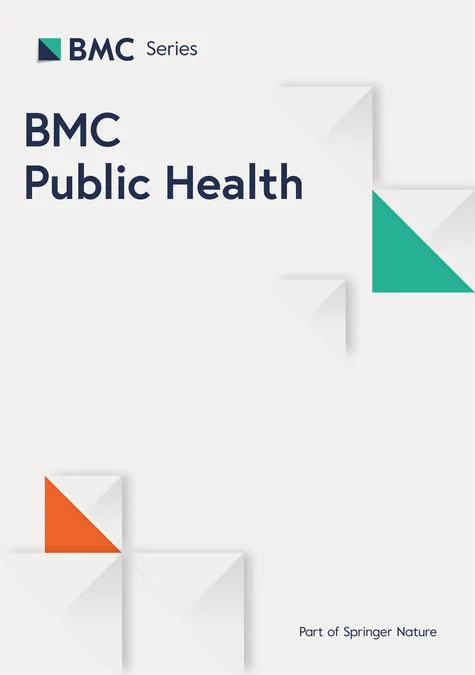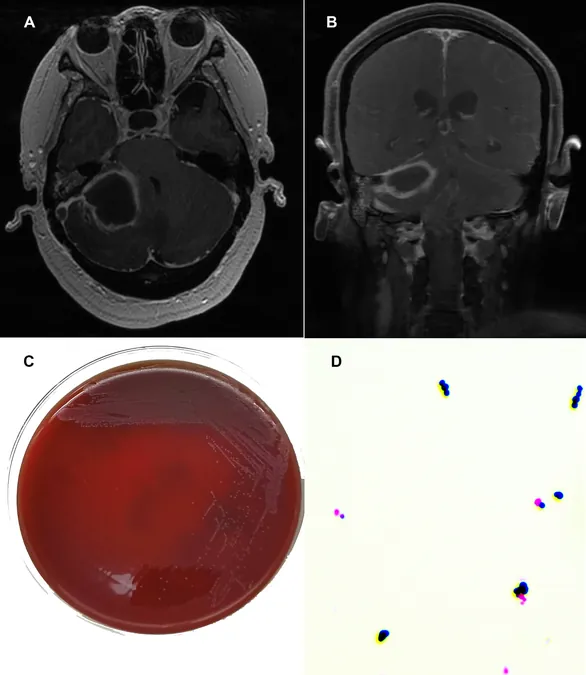
Post-Pandemic Confidence in Routine Vaccinations: Key Insights from a Saudi Arabian Study
2024-12-30
Author: Arjun
Overview
In the wake of the COVID-19 pandemic, public confidence in routine vaccinations has come under scrutiny, as evidenced by a cross-sectional study involving 1,217 participants conducted in Saudi Arabia. This research highlights crucial demographic and clinical characteristics among those surveyed, revealing that a significant majority were females (67.6%), with many participants falling in the 18 to 30 age range (57.8%). Importantly, the study found that over 90% of the participants were Saudi nationals, with a predominant percentage holding a university degree or higher (78.3%).
Vaccination Confidence
A noteworthy finding was that a large fraction (63.3%) of respondents received three doses of the COVID-19 vaccine, which appeared to correlate with their confidence in routine immunizations. Survey results indicated that over 80% of participants believed routine vaccinations are vital for their children's health and preventing diseases, underscoring the perceived importance of immunization amidst public health challenges.
Mandatory Vaccination Policies
The research revealed that 59.5% of participants agreed that mandatory laws should enforce routine vaccinations, and nearly two-thirds (63.3%) felt that vaccination should be a prerequisite for accessing public facilities like schools and hospitals. This supports a growing consensus on the necessity of such policies to enhance public health.
Awareness and Misinformation
Furthermore, awareness of the significance of routine vaccinations appears to have shifted due to the pandemic; 81.1% of respondents acknowledged the pandemic’s impact on public perception and understanding of vaccinations. Alarmingly, about 67.6% reported being aware of misinformation surrounding COVID-19 vaccines, reflecting rising skepticism that could undermine public health efforts.
Impact of the Pandemic on Routine Vaccinations
Delays in routine vaccinations during the pandemic were also a considerable concern. The study indicated that only about 46.2% of participants ensured their children received all routine vaccinations on schedule throughout the pandemic. In contrast, 5.7% admitted to having delayed vaccinations, highlighting gaps that could lead to increased vulnerability to preventable diseases.
Trust in Healthcare Professionals
After evaluating various sources of information, the study found that trust in healthcare professionals remains strong, with 89.6% of participants expressing confidence in their recommendations regarding routine vaccinations. However, faith in social media as a reliable information source was considerably low (27.5%), indicating a need for improving public trust in credible health information avenues.
Demographic Influences on Vaccination Confidence
As parents consider their children's health post-pandemic, the study identified that 71.5% of participants voiced high confidence in the effectiveness of routine vaccines. Interestingly, specific demographics, including marital status and perceived economic stability, significantly influenced participants’ confidence levels, pointing to socioeconomic factors as critical in shaping attitudes toward vaccination.
COVID-19 Vaccine Hesitancy
Despite some positive indicators regarding routine vaccines, a concerning trend emerged: only 16.8% expressed strong confidence in the effectiveness of COVID-19 vaccines, a stark contrast to the higher levels of trust in longstanding vaccines like DPT or polio vaccines. Such data suggest that the rapid development and deployment of COVID-19 vaccines may have engendered doubt, leading to greater hesitance about newer vaccines among the public.
Concluding Insights
Ultimately, participants reported varying levels of confidence in routine vaccines after the pandemic, with 59% maintaining their previous trust levels while 19% experienced an increase, and 22% noted a decrease. Reasons for the decline in confidence included fear regarding the effect of the COVID-19 vaccine on immunity, misinformation, and a lack of trust in health authorities.
This study elucidates essential insights into the current landscape of public opinion on vaccinations, emphasizing the need for targeted educational campaigns to address misinformation and enhance confidence in routine immunizations. As the world transitions into a post-pandemic reality, fostering a robust understanding of the importance of vaccines remains crucial for maintaining community health and preventing outbreaks of vaccine-preventable diseases.
In conclusion, these findings not only highlight enduring trust in established vaccines but also underscore significant challenges ahead in addressing COVID-19 vaccine hesitancy. As professionals grapple with these issues, proactive public health strategies will be essential for improving vaccination rates within communities.





 Brasil (PT)
Brasil (PT)
 Canada (EN)
Canada (EN)
 Chile (ES)
Chile (ES)
 Česko (CS)
Česko (CS)
 대한민국 (KO)
대한민국 (KO)
 España (ES)
España (ES)
 France (FR)
France (FR)
 Hong Kong (EN)
Hong Kong (EN)
 Italia (IT)
Italia (IT)
 日本 (JA)
日本 (JA)
 Magyarország (HU)
Magyarország (HU)
 Norge (NO)
Norge (NO)
 Polska (PL)
Polska (PL)
 Schweiz (DE)
Schweiz (DE)
 Singapore (EN)
Singapore (EN)
 Sverige (SV)
Sverige (SV)
 Suomi (FI)
Suomi (FI)
 Türkiye (TR)
Türkiye (TR)
 الإمارات العربية المتحدة (AR)
الإمارات العربية المتحدة (AR)